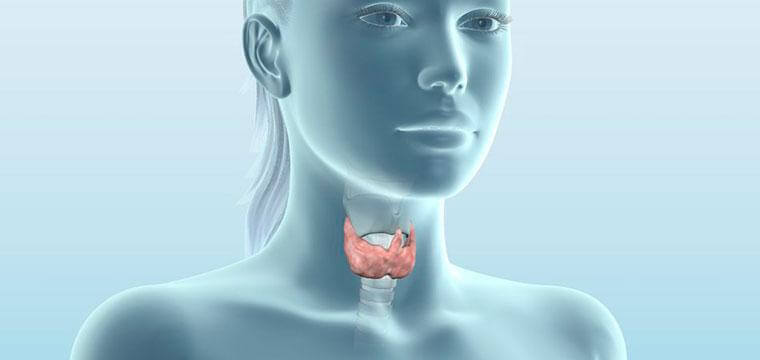
Hypothyroidism: What it is, how to recognize and treat it?
Hypothyroidism is a disease of the thyroid gland, in which it produces insufficient amounts of hormones. These hormones (thyroxine (T4) and triiodothyronine (T3)) play an important role in regulating metabolism, energy, heart, brain and other organs.
Causes of hypothyroidism
• Autoimmune thyroiditis (Hashimoto’s thyroiditis) is the most common cause when the immune system attacks the thyroid gland.
• Iodine deficiency – an important trace element for hormone production.
• Surgical removal of the thyroid gland or part of it.
• Taking certain medications, such as amiodarone or lithium.
• Congenital abnormalities of the thyroid gland (congenital hypothyroidism).
Symptoms of hypothyroidism
Signs of the disease can appear gradually, so they can be easily confused with other conditions. Among the main symptoms:
• Constant fatigue, weakness, drowsiness.
• Weight gain, despite the preserved appetite.
• Dry skin, brittle nails and hair, hair loss.
• Cold extremities, feeling of being cold.
• Depression, irritability, impaired memory and concentration.
• Slowed pulse, low blood pressure.
• Swelling of the face, hands, feet.
• Menstrual disorders, infertility.
When to see a doctor?
See a doctor if you notice constant fatigue, weight gain for no apparent reason, or any of the other listed symptoms.
Diagnosis
To detect hypothyroidism, your doctor will order blood tests to check the level of:
• TSH (thyroid-stimulating hormone) – the main marker for diagnosis.
• T4 (free thyroxine) – shows the level of thyroid hormones.
Treatment
The main method of treatment is thyroid hormone replacement therapy. The drug levothyroxine (synthetic T4) is prescribed, which is taken daily. The dose is selected by the doctor, taking into account your tests, age and concomitant diseases.
What is important for patients?
1. Take the medication regularly. Levothyroxine should be taken on an empty stomach, at least 30 minutes before a meal.
2. Monitor hormone levels. After starting treatment, the doctor will check the TSH and T4 levels every 6–8 weeks to adjust the dose.
3. Diet: eat foods rich in iodine (seafood, seaweed), but avoid excessive iodine intake.
4. Monitor symptoms. If you feel tired or have other symptoms again, consult a doctor.
Prognosis
With regular medication and medical supervision, patients with hypothyroidism lead full lives. However, without treatment, this disease can lead to serious complications, such as myxedema, heart failure, or infertility.
Remember: early diagnosis and proper treatment are the key to your health!
Doktor-endocrinologist Oleksandr Lymar
Addition information:
Leave your email
and we will contact you soon